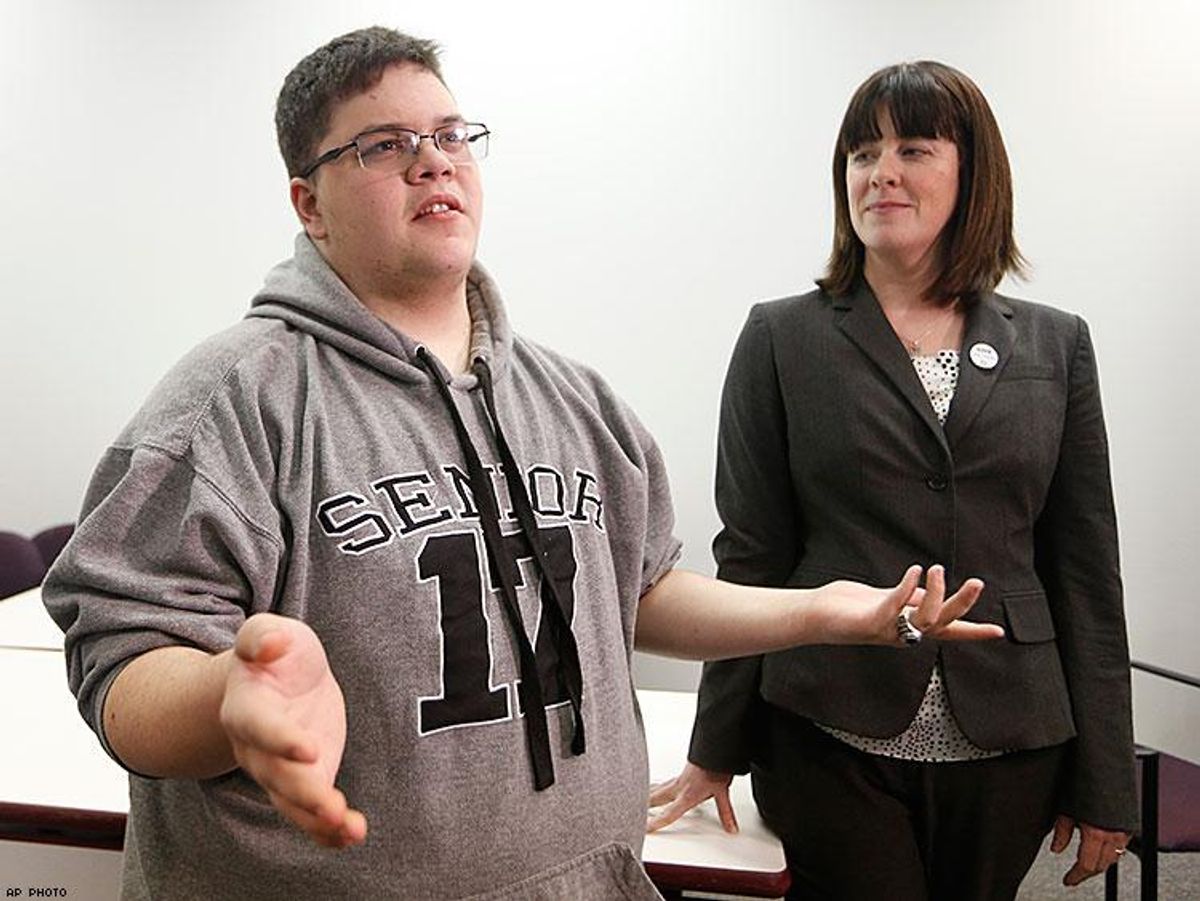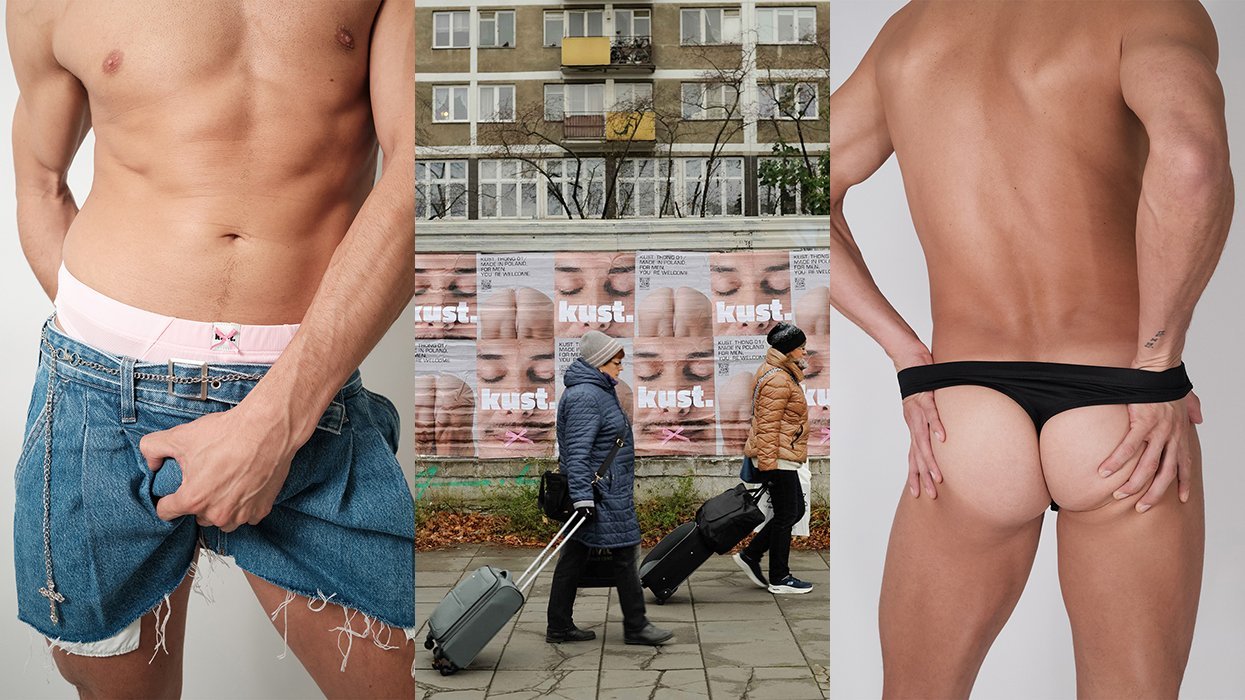The news that Gavin Grimm's case, due to go before the Supreme Court, was being sent back to a lower court came as a shock and disappointment to trans people everywhere. This was supposed to be the big one. This was going to be the one where the Supreme Court considered for the first time an issue pertaining trans rights and could have settled the whole bathroom question once and for all. It was going to be the case, but then Trump happened. I get the feeling for the next few years, that's going to become a phrase people use -- "I was going to go on vaction, but then Trump happened."
When President Trump's Departments of Justice and Education rescinded guidelines on how schools should treat transgender students to avoid violating Title IX's ban on sex discrimination, it collapsed the case of Grimm, who like every other trans person just wanted to pee in peace. The case was sent back because the Fourth Circuit Court of Appeals' ruling was heavily based on the guidelines on the issue, based on a principle called an "Auer deference." It's a bit of legal wrangling, but summed up, it's legal deferment to "permissible interpretation" of regulations. In this particular case, it means that the court deferred to the guidance issued by the departments during the Obama administration, when they held that gender identity discrimination was included in Title IX's sex discrimination ban.
Then Trump happened.
This caused a problem for the Supreme Court, because now the basis of the appeals court decision that brought the case getting to the Supreme Court was moot. Any decision the high court made would be based on a policy that no longer existed, and well, you can't break the rule if it's not a rule. The Supreme Court then issued a decision to vacate and remand, which might sound horrifying and a death blow to the whole case, but not quite. Vacate and remand essentially means "redo." The Supreme Court took a look at the original ruling and said, "Well, without this key element, it's pointless for us to review; do it over." It may sound like a big deal, but since about 1945 this has happened in roughly one out of nine cases. What happens after that gets more complex, but let me reassure you, the world hasn't ended.
What will happen now is that the lawyers in this case will have to reargue it without relying so much on the guidance and argue that in fact Title IX does protect transgender people, as the Obama administration and several other courts said it did, using all sorts of legal arguments about language, phrasing, intent, and similar precedents. Let's just say that if Gavin's lawyers weren't already worn down to nubs with long nights in legal libraries, mock trials, writing appeals, gathering experts, and so forth, they will develop a few more gray hairs and stress lines, along with having more than one or two screaming fits late at night when the pressure gets to them. Hey, if being a high-stakes civil rights attorney was all fun and games, there would be more of them advertising at bus stops.
Another thing that might happen is another case will get bundled in with Gavin's. Most people know Brown v. Board of Education as the big case that ended "separate but equal," but it was a combination of five cases, one of which was previously remanded. There are other cases that are snaking their way through the courts and new cases that will be filed addressing the issue of bathroom access. They stand a good chance of being heard all at the same time, each with a different circumstance and argument behind them. A few similar cases may even be heard beforehand about things such as insurance access, medical care, prisoners' rights, etc., that help clarify the issue. If Texas's bathroom bill passes, without a doubt that will end up in the federal courts due to its specifically targeting transgender women, and it could easily be considered something called "unconstitutional animus" or, more simply, "We passed a law to target you because we don't like you," which violates the U.S. Constitution's Equal Protection Clause. A good example of this in LGBT history is Romer v. Evans, in which the Supreme Court said you couldn't pass laws to specifically discriminate against LGBT people.
Look, this law stuff is hard, complex, and confusing. Out of all the people who have ever written stories about systems of justice, the one who nailed them most accurately was probably Franz Kafka. Yes, the cockroach guy. His other works were often about how Byzantine, frustrating, and ultimately infuriating the legal system can be, to the point that it borders on absurdist comedy. Yes, the Supreme Court rendered a decision that is a major letdown to trans people, but it's not the end, it's not even really a setback, it's really just what my teacher used to write at the top of my handwriting assignments in grade school, and that's "REDO" written in big red letters.
AMANDA KERRI is a writer and comedian based in Oklahoma City. Follow her on Twitter @EternalKerri.

















































































